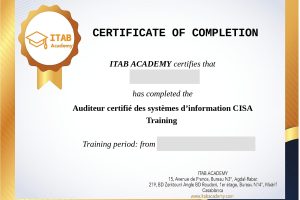Mastering Digital Marketing: A Comprehensive Training Program**
In today’s fast-paced digital landscape, mastering digital marketing is essential for businesses and professionals seeking to thrive in the competitive online market. Digital marketing training programs offer individuals the opportunity to acquire the knowledge, skills, and strategies needed to navigate the complexities of digital marketing effectively. This comprehensive training guide provides an overview of key components essential for mastering digital marketing and achieving success in the digital realm.
**1. Understanding Digital Marketing Fundamentals**
– Introduction to Digital Marketing: Explore the evolution of digital marketing and its significance in modern business strategies.
– Digital Marketing Channels: Learn about various digital channels including search engines, social media platforms, email marketing, content marketing, and display advertising.
– Consumer Behavior and Psychology: Understand consumer behavior in the digital age and how to leverage psychological principles to create effective marketing strategies.
**2. Crafting a Digital Marketing Strategy**
– Setting Objectives and Goals: Define clear objectives and goals for digital marketing campaigns aligned with business objectives.
– Target Audience Identification: Conduct market research to identify target audiences and create detailed buyer personas.
– Competitive Analysis: Analyze competitors’ digital marketing strategies to identify strengths, weaknesses, opportunities, and threats.
– Developing a Digital Marketing Plan: Create a comprehensive digital marketing plan outlining strategies, tactics, timelines, and budget allocation.
**3. Implementing Digital Marketing Tactics**
– Search Engine Optimization (SEO): Learn on-page and off-page SEO techniques to improve website visibility and organic search rankings.
– Content Marketing: Develop content marketing strategies including content creation, distribution, and promotion to engage and attract target audiences.
– Social Media Marketing: Explore social media platforms, content strategies, advertising options, and community management techniques.
– Email Marketing: Design and implement effective email marketing campaigns for lead generation, nurturing, and customer retention.
– Pay-Per-Click (PPC) Advertising: Understand PPC advertising platforms, keyword research, ad copywriting, bidding strategies, and performance tracking.
**4. Analyzing and Optimizing Digital Marketing Performance**
– Key Performance Indicators (KPIs): Identify relevant KPIs to measure the success of digital marketing campaigns.
– Web Analytics: Utilize web analytics tools such as Google Analytics to track and analyze website traffic, user behavior, and campaign performance.
– Conversion Rate Optimization (CRO): Implement CRO techniques to improve website conversion rates and maximize ROI.
– A/B Testing and Experimentation: Conduct A/B tests to optimize digital marketing campaigns and improve overall performance.
**5. Compliance, Ethics, and Legal Considerations**
– Data Privacy and Protection: Understand data privacy regulations such as GDPR and CCPA and ensure compliance in digital marketing practices.
– Ethical Marketing Practices: Adopt ethical marketing principles and practices to build trust and credibility with audiences.
– Intellectual Property Rights: Respect intellectual property rights and copyright laws when creating and distributing digital marketing content.
**6. Continuous Learning and Professional Development**
– Staying Updated with Industry Trends: Keep abreast of the latest trends, technologies, and best practices in digital marketing through continuous learning and professional development.
– Networking and Collaboration: Join digital marketing communities, attend industry events, and collaborate with peers to share knowledge and stay connected with industry experts.
– Pursuing Certifications and Specializations: Consider pursuing relevant certifications and specializations in areas such as SEO, social media marketing, content marketing, and digital analytics to enhance skills and credibility.
**Conclusion**
Digital marketing training equips individuals with the knowledge, skills, and strategies needed to succeed in today’s digital-first world. By mastering digital marketing fundamentals, developing comprehensive strategies, implementing effective tactics, and continuously analyzing and optimizing performance, individuals can create impactful digital marketing campaigns that drive business growth and achieve marketing objectives. With a commitment to continuous learning, adaptation, and innovation, digital marketers can stay ahead of the curve and make a significant impact in the dynamic and ever-evolving field of digital marketing.




